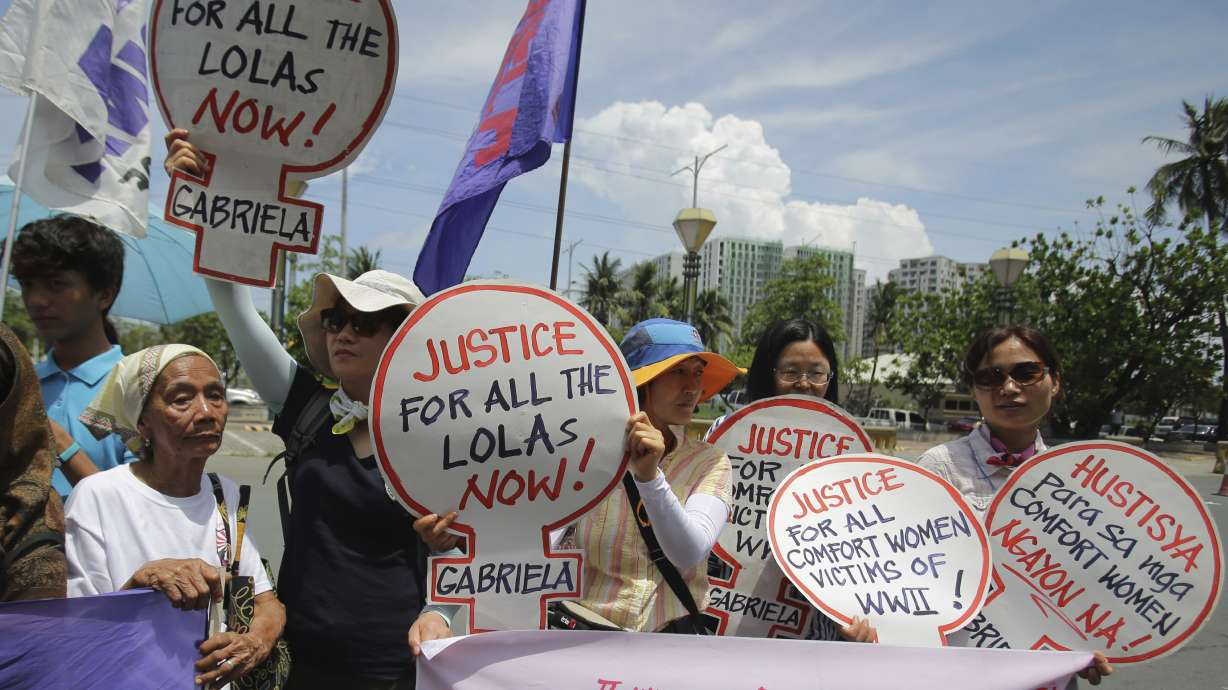Estimated read time: 2-3 minutes
This archived news story is available only for your personal, non-commercial use. Information in the story may be outdated or superseded by additional information. Reading or replaying the story in its archived form does not constitute a republication of the story.
MANILA, Philippines (AP) — Filipino women forced into prostitution by the Japanese military during World War II marched Wednesday to the Japanese Embassy to demand justice and to criticize Philippine President Benigno Aquino III's silence on the issue during his visit to Japan.
Six women in their 80s and some two dozen supporters and activists picketed the embassy to call on Prime Minister Shinzo Abe to apologize and compensate them for their ordeal.
"Abe should be made to answer for what the Japanese soldiers did to us," said Estelita Dy, 84. "Justice is what we need, justice now."
Dy denied she and others were voluntary prostitutes, as Japanese nationalists have contended. She said her ordeal began when she was arrested by Japanese troops and shoved into a truck against her will.
"We are already old (but) we will not stop until we can obtain real justice, until we can make sure that there will be peace based on justice," said Virginia Villarma, also 84.
The women and their supporters say Japan must go beyond statements and resolve the issue after a Japanese panel last week affirmed the validity of a study that led to Japan's landmark 1993 apology for forcing Asian women into wartime prostitution.
South Korea and China have criticized Abe for backpedaling from past Japanese apologies and acknowledgements of wartime atrocities, and the two countries saw the recent review as an attempt to undermine the 1993 apology.
Historians say 20,000 to 200,000 women from across Asia, many of them Koreans, were forced to provide sex to Japan's front-line soldiers. In addition to insisting the so-called "comfort women" worked in wartime brothels voluntarily, Japanese nationalists also say Japan has been unfairly criticized for a practice they say is common during war.
Rechilda Extremadura, executive director of the group Lila-Pilipina that supports former sex slaves, said the 1993 apology must only be a first step and Japan must do more for the women in their twilight years.
"If they can't have justice now, it will be too late for the Japanese government and for the people of Japan," she added.
Extremadura also criticized Aquino, who met with Abe on Tuesday in Japan, for "not representing the plight of the Filipino comfort women" and for never mentioning the issue during his visit.
Copyright © The Associated Press. All rights reserved. This material may not be published, broadcast, rewritten or redistributed.








